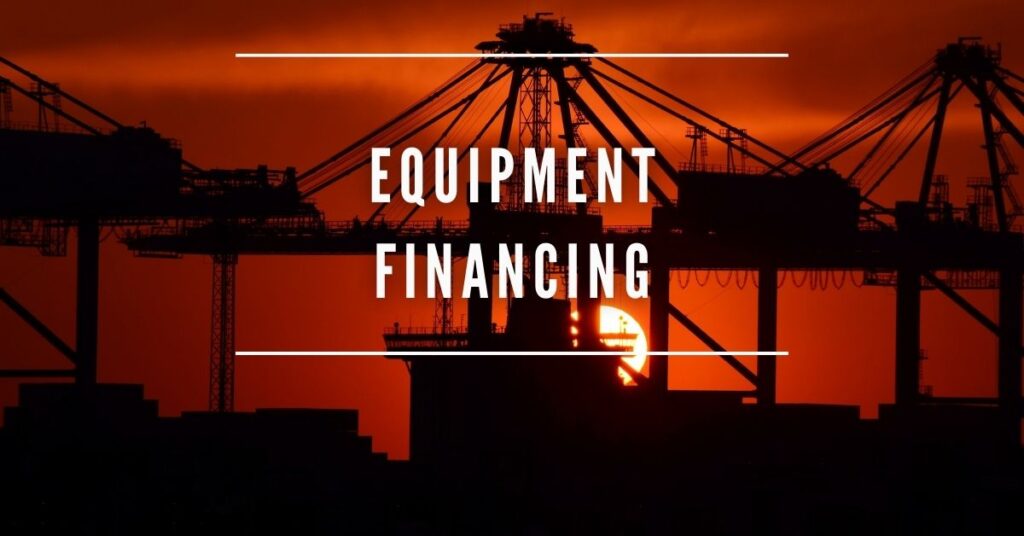Advantages and Disadvantages of Equipment Financing

How Does Equipment Financing Work?
Equipment financing is a loan used to buy business-related equipment, such as a restaurant stove or a photocopier scanner. Equipment loans require scheduled repayments that include the rate of interest and also principal over a fixed term. As security for the loan, the loan provider may require a lien on the equipment as collateral versus your financial debt. When the financing is paid in full, you own the equipment free and clear. An equipment loan structure may also require a lien on additional company assets. Failure to pay your loan might result in the repossession of your business assets or your individual assets– in the case of a personal guaranty. A careful review of the loan terms is vital to understanding your risk.
However, a lot of equipment is expensive, and financing might be the only option. The good news is, that’s why company owners turn to equipment loans for their financing needs!
Determining if an equipment loan is right for your company will undoubtedly rely on many elements. Nonetheless, if you’re dependent on expensive equipment to run your business, equipment financing could be an excellent choice.
To help you assess if equipment financing is right for your business, we’ve put together a checklist of the advantages and disadvantages of equipment financing. After reading this, you can determine if equipment financing is right for your business.

Advantages of Equipment Financing
1. Obtain capital for the equipment your business needs
Even if your business is established, chances are you do not have sufficient cash flow readily available to invest in equipment. Fortunately, capital for equipment is precisely what these kinds of loans are used for.
Since business equipment financing allow you to borrow money, especially to pay for equipment, you don’t need to save up for the cash to purchase. Allowing you to take advantage of new technology or replace equipment before it breaks.
Equipment Financing can improve your business’s bottom line. Waiting too long to purchase equipment can drastically hurt your company’s profit margins. Especially if the equipment is essential to your business operations. For example, if your dining establishment’s oven breaks, you’ll need to repair or change it immediately. The longer it is damaged, the more money you lose.
2. Spread out the cost of acquiring equipment
For any type of business owner, cash flow is a constant concern. Also, purchasing equipment with cash can hurt your cash flow. Nevertheless, since an equipment loan allows you to spread your cost, this sort of loan improves cash flow.
3. Not required to pledge additional collateral
To get a term loan, you could be required to pledge collateral that you currently own, such as real estate or automobiles. This usually isn’t the situation with an equipment loan. Many online loan providers only require utilizing the equipment you’re buying as collateral for the loan. The advantage is this significantly reduces your downside risk.
4. Increase Your Company’s Future Sales
If you obtain an equipment loan, it could enhance your company’s total performance. For example, if you own a manufacturing company, having additional equipment could help you complete orders much faster. You could even have the ability to take on other clients, which would increase your bottom line.
By getting an equipment loan, you’ll be investing in your business and may even have the ability to gain more revenue in the future!
Disadvantages of Equipment Financing:
1. Application Is Restricted to Equipment
As the name indicates, equipment loans can solely be made use of for equipment. That means you won’t be able to use the earnings from an equipment loan to cover payroll costs, rent, or anything else. For example, suppose your company needs financing for building equipment and wishes to use the payroll funds. In that case, this isn’t the right sort of loan for you in this situation.
2. Greater Rates Than Traditional Loans
However, suppose you have an excellent business credit history. In that case, you’ll likely have the ability to find a reduced interest rate by securing top-tier equipment financing. Before looking for any kind of financing, we suggest inspecting your credit score. That way, if you have bad credit, you can remedy it before applying
Still, some typical lending institutions can be slower to offer a loan amount (approximately 30 to 90 days) and call for even more paperwork. On top of that, lots of loan providers have a time in business demand, implying you might have to wait until you’ve been operational for a certain length of time. Consequently, if your equipment requirements are pushing, you might not have the ability to stay on a traditional lender to approve your application.
3. You Own the Equipment
Ultimately owning business equipment could be an advantage or a disadvantage, depending on how you look at it. When you secure a small business loan for equipment, you’re borrowing money to buy and own equipment. An alternative to this is equipment leasing. With an equipment lease, you make regular monthly payments to use the equipment and return it when the lease is over.




